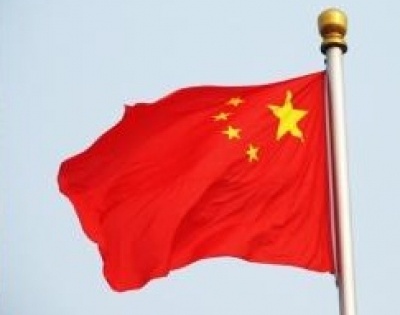Chinese anxiety, panic has blowback effect in Vietnam
By IANS | Published: September 7, 2021 01:30 PM2021-09-07T13:30:07+5:302021-09-07T13:40:15+5:30
New Delhi, Sep 7 During the visit of US Vice President Kamala Harris to Vietnam from August 24-26, ...

Chinese anxiety, panic has blowback effect in Vietnam
New Delhi, Sep 7 During the visit of US Vice President Kamala Harris to Vietnam from August 24-26, one witnessed an unusually combative attitude of the Chinese crossing all barriers of diplomatic courtesies and civilised behaviour.
In an effort to desperately counter American engagement in this region and specially in Vietnam, the Chinese resorted to a crude diplomatic manoeuvre by beating the Americans in delivering Covid-19 vaccines in the Southeast Asian nation. While the US pledged delivery of one million doses of Covid-19 vaccine to Vietnam, the Chinese Ambassador Xiong Bo met Vietnamese Prime Minister Pham Minh Chinh on the day of Harris' arrival and delivered two million Sinovac doses with the aim to undercut the planned American announcement of one million Covid jabs.
Such mean and child-like behaviour of the Chinese have indeed exposed the level of desperation in them to prove that they are ahead of the others while engaging countries in the region. The development placed Vietnam in an awkward situation with Prime Minister Chinh mentioning that Vietnam does not allow one country to fight with another. The childish approach led to severe criticism of the Chinese by the Vietnamese public at large.
The Chinese did not stop at this as the Chinese Embassy in Vietnam reacted on August 27 sharply to the remarks made by the US Vice President on the South China Sea (SCS), wherein she criticised Beijing for its "coercive bullying" actions in the region. Harris also mentioned, as per the prevailing US stand on SCS, that American Navy could continue its presence in the region and challenge China's excessive maritime claims. The Chinese Embassy reacted by reiterating the Chinese government's position on the matter and ended up creating a mess. The Embassy tried to malign Washington's image by criticising American actions during the US-Vietnam War and blaming it for the recent political turmoil in Afghanistan. Some of the historical facts mentioned by the Embassy on social media on Chinese rights over SCS led to a large scale attack by the Vietnamese public. In their eagerness to portray China's position on SCS with the aim of countering the Americans, the Embassy lost track of the fact that in doing so they stepped on Vietnamese sentiments.
The development created an ugly situation with the Vietnamese government compelled to issue a ‘Demarche' to the Chinese, raising objections to "inappropriate contents" mentioned in the post by the Chinese Embassy. It alleged that some contents in the Embassy's post were contrary to Vietnam's stance on the SCS and "inappropriately cited", and wrongly compared a number of historical events which caused frustration among Vietnamese public. The action by Chinese Embassy is evidence of the continued domination of the policy of "Wolf Warrior Diplomacy" being pursued by Chinese Missions abroad.
In a highly charged political atmosphere with a reasonably conscious and highly alert Vietnamese public who tend to closely observe developments in the region, the Chinese overdrive indeed turned out to be damaging to China's image in Vietnam and the region. The incident would also alert other countries in the region to be cautious of the ‘Wolf Warrior diplomacy" of the Chinese. The Wolf Warriors need to realise that one cannot take local sentiments for granted or ignore such sentiments outrightly.
Disclaimer: This post has been auto-published from an agency feed without any modifications to the text and has not been reviewed by an editor
Open in app